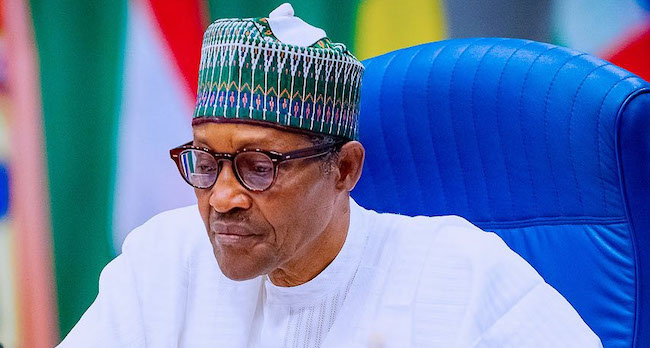Aso Rock Watch
ASO ROCK WATCH: Fighting off stigma of nepotism, ethnic bias. Two other talking points

Last week, President Muhammadu Buhari fought back critics who hold the opinion that his appointments and developmental projects are tainted by nepotism and ethnic considerations.
His response stems from the plethora of criticisms that have trailed his supposed flouting of the Federal Character Principle as enshrined in the 1999 Constitution (as amended).
This, and two other stories, shaped major conversations around the Buhari presidency past week.
Fighting back critics
On June 21, President Buhari declared that his administration had not discriminated against any region of the country in terms of projects, infrastructural development and federal appointments.
Speaking in Abuja at the Progressive Youth Conference, Buhari said, “So far, all the policies initiatives, projects and even appointments by this administration has been guided by equity and inclusiveness. There is actually no part of the country that has not been impacted positively in the areas of infrastructure, agriculture and economic support initiatives, based on peculiarities of the regions.”
READ ALSO: ASO ROCK WATCH: Buhari’s funny dance steps on restructuring. Two other talking points
He was represented by the Secretary to the Government of the Federation (SGF), Boss Mustapha.
Buhari’s claim of inclusiveness is one that has generated the most of debates since the emergence of the ruling All Progressives Congress (APC).
Individuals, including groups, have called out the President on their dissatisfaction with his projects, and appointments which tend to favour mostly those from the Northern belt of the country.
Critics have constantly argued that Buhari is yet to wean himself of a statement attributed to him on July 22, 2015 when he said, “Going by election results, constituencies that gave me 95 per cent cannot in all honesty be treated, on some issues, with constituencies that gave me five per cent.
While Buhari has the right to distance himself from accusations of not properly managing the country’s diversity, he needs not to be reminded that there are glaring examples of how his leadership has failed to harness this latent resource.
The negative perceptions have become too weighty to ignore and the administration may do well to look inwards, and see where amends can be made to give the federating units a greater sense of belonging in the Nigerian project.
Two other talking points
READ ALSO: ASO ROCK WATCH: Lonely at the top!
Dealing with drug trafficking
On June 26, President Buhari identified drug trafficking and abuse as more dangerous to the stability of the country than banditry and insurgency.
Speaking at the launch of the War Against Drug Abuse (WADA), which is an initiative of the National Drug Law Enforcement Agency (NDLEA), Buhari, represented by the Secretary to the Government of the Federation (SGF), Boss Mustapha, said:
“So, it is more deadly than even the security challenges that we are having in this country, and I believe strongly that every effort must be put in place to ensure that we deal with the issues of substance abuse, and trafficking, and manufacture.”
NDLEA claims that about 10.6 million Nigerians abuse drugs, and that ordinarily should be a major source of concern to discerning Nigerians.
Buhari, perhaps, had borrowed a leave from Senate President Ahmad Lawan who, on March 3, raised the alarm that drug barons were responsible for funding of terrorists.
The President’s claim, though arguable, given the wholesome destruction and dislocation of societies through violence, should serve as a challenge for a moral regeneration of the country.
In this regard, therefore, the need for a concerted response cannot be underestimated. The NDLEA, and other relevant government institutions and/or agencies must work to arrest the growing scourge, and salvage the country from those who are determined to destroy it.
The disturbing developments should see more action and less talk.
Osinbajo’s assurances
On June 24, Vice President Yemi Osinbajo reaffirmed that the current security challenges facing Nigeria would soon be a thing of the past.
Osinbajo said this when he received in audience the Oluyin of Iyin Ekiti, His Royal Majesty, Oba Adeola Adeniyi Ajakaiye, at the Aso Rock Villa, Abuja.
He said: “I can assure you that soon, the issue of insecurity will be a thing of the past and that we will live in peace and prosperity in this country.”
Yes, Nigerians do need assurances that all will be well amidst the pitiable security challenges orchestrated by Boko Haram terrorists, bandits and the so-called unknown gunmen.
While Osinbajo brings his persuasive skills to the table, it would be trite to state that troubled Nigerians need more than mere assurances.
They want to see what the government is doing, how it is doing it, and the result of the actions taken, all to stem the raging tide making life hellish for them.
By John Chukwu
Join the conversation
Support Ripples Nigeria, hold up solutions journalism
Balanced, fearless journalism driven by data comes at huge financial costs.
As a media platform, we hold leadership accountable and will not trade the right to press freedom and free speech for a piece of cake.
If you like what we do, and are ready to uphold solutions journalism, kindly donate to the Ripples Nigeria cause.
Your support would help to ensure that citizens and institutions continue to have free access to credible and reliable information for societal development.



























